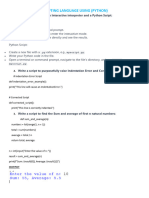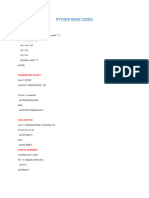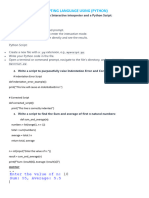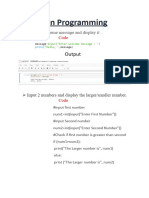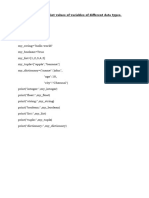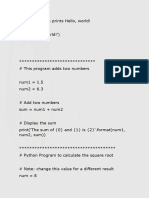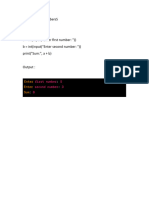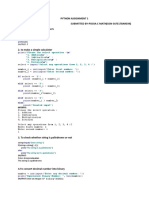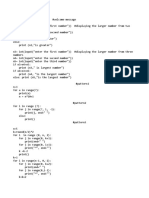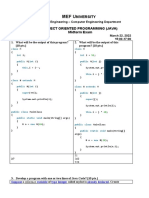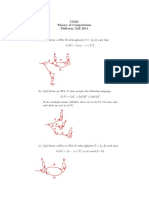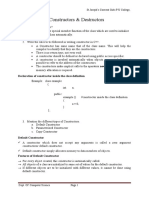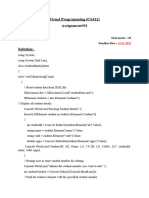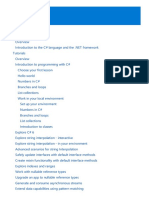0% found this document useful (0 votes)
42 views5 pagesAccenture Coding Questions Solutions
The document contains a collection of programming questions and solutions categorized into basic, intermediate, and advanced levels. It includes functions for checking prime numbers, reversing numbers, finding the largest element in an array, and more. Additionally, it covers string manipulations, sorting algorithms, and basic calculator operations.
Uploaded by
Kolkar 's AfreedCopyright
© © All Rights Reserved
We take content rights seriously. If you suspect this is your content, claim it here.
Available Formats
Download as PDF, TXT or read online on Scribd
0% found this document useful (0 votes)
42 views5 pagesAccenture Coding Questions Solutions
The document contains a collection of programming questions and solutions categorized into basic, intermediate, and advanced levels. It includes functions for checking prime numbers, reversing numbers, finding the largest element in an array, and more. Additionally, it covers string manipulations, sorting algorithms, and basic calculator operations.
Uploaded by
Kolkar 's AfreedCopyright
© © All Rights Reserved
We take content rights seriously. If you suspect this is your content, claim it here.
Available Formats
Download as PDF, TXT or read online on Scribd
/ 5



